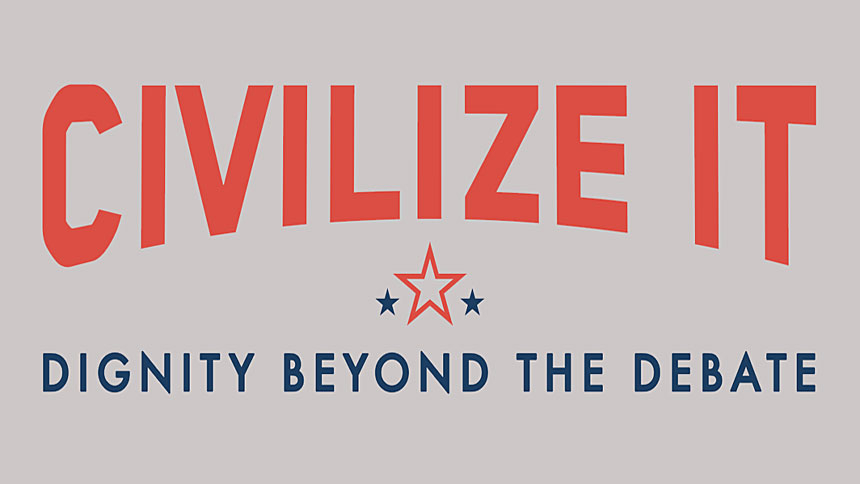
“Although there are many reasons to be discouraged, amid many prophets of destruction and condemnation, and so many negative and despairing voices, may you be a positive force, for this society. Like the engine of a train, may you be the driving force leading all towards their destination. May you be sowers of hope, builders of bridges and agents of dialogue and harmony.”
– Pope Francis, Apostolic Journey, April 29th, 2017
We need now, more than ever, “agents of dialogue and harmony” in every community across our country. So, how can Catholics respond to Pope Francis’ call to be these “sowers of hope” that might help heal our communities when there is so much trying to tear us apart?
Our Catholic tradition has a long history of commitment to human dignity that requires us to raise our voices when we see injustice happening around us. Our commitment to human dignity is broad and deep. We are called to uphold the dignity of all people: those not yet born, immigrants at the border, those suffering under racist systems that deny their full humanity, the elderly whose lives are not valued, people without proper healthcare, and yes, even those who disagree with us about how to solve the problems our communities face.
In recognizing the need for more agents of dialogue in our communities, USCCB launched an initiative called Civilize It in November of 2019, a year ahead of our now imminent national election. As the bishops state in Forming Consciences for Faithful Citizenship (FCFC), “The Church calls for a different kind of political engagement: one shaped by the moral convictions of well-formed consciences and focused on the dignity of every human being, the pursuit of the common good, and the protection of the weak and the vulnerable.” (FCFC, no. 14)
Civilize It calls us to speak truth with love. Civilize It is an opportunity to build bridges in our communities and for each one of us to become an agent of dialogue by avoiding making assumptions about others and resisting hurtful personal attacks when engaged in important, often difficult conversations. Open dialogue requires authentic relationship. We must be willing to listen with an open mind to the experiences which inform the viewpoints of our brothers and sisters. At the same time, we know that not all viewpoints hold the same weight. Those which advocate for the destruction of human lives or uphold racist stereotypes are our responsibility to correct with charity. This is how we are called to love our neighbor.
Loving our neighbor through open dialogue is even more important today, while so many of us are at home more and spending more time interacting virtually. It is often easier to deny the dignity of someone who is not right in front of you. While interacting online, we don’t have the benefit of non-verbal cues and body language. And yet our call remains the same: speak the truth with love.
We can be builders of bridges and agents of dialogue, as Pope Francis calls us to be, by adhering to the three tenets of the Civilize It campaign: civility, clarity, and compassion. Here’s what each of the components of the pledge invite us to do:
- Civility: Honor the human dignity of the other, recognizing each person and a beloved child of God. This is especially true for those we find it difficult to love, or even those closest to us, within our own families.
- Clarity: Seek understanding first. This might be accomplished by asking ourselves, “How do I enter this conversation? Am I trying to “win” or am I authentically looking to understand the experiences and viewpoints of others?” Assuming a posture of learning from one another often helps.
- Compassion: Be willing to take a step into the life and experiences of another person. Are we willing to stand together in the pain or the joy, and to seek commonality and solutions together?
Honoring human dignity means answering the call in our communities to seek solutions as brothers and sisters, united by our care for one another. We are not afraid of tough conversations, but approach one another with civility, compassion, and clarity, sowing the hope we gain from Christ our savior.
Download brochure (PDF)
Emily Schumacher-Novak is assistant director of Education and Outreach, USCCB Department of Justice, Peace and Human Development. Emily Schumacher-Novak holds an M.A. in Systematic Theology from Marquette University. She worked for ten years in Catholic higher education before coming to the USCCB. Emily now serves as the Assistant Director of Education and Outreach in the Department of Justice, Peace and Human Development at USCCB.

